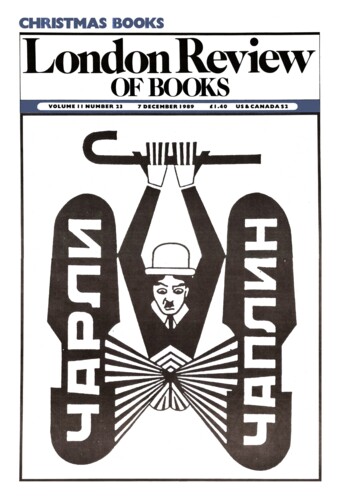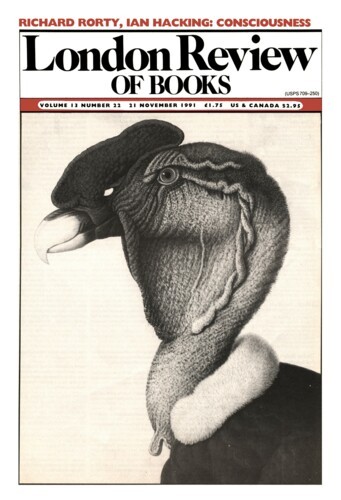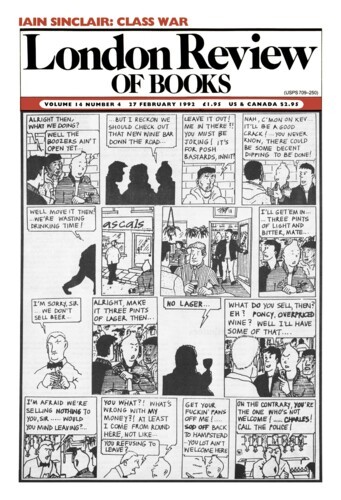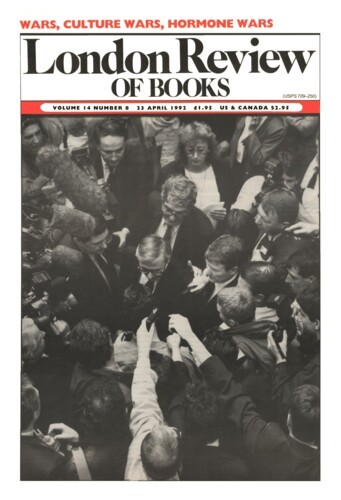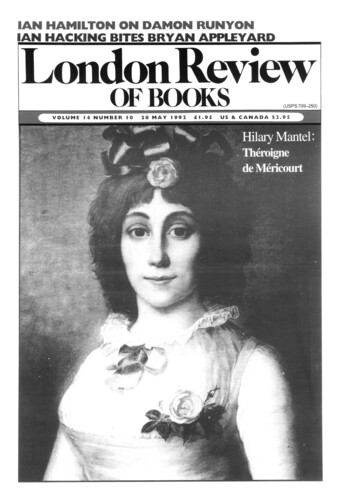Ultra-Sophisticated
Hilary Mantel, 7 December 1989
Edwina had her date with destiny on 10 September 1986. A TV crew were camped outside her house in her Derbyshire constituency, and were shining lights through the windows. Edwina waited for the phone to ring. When it did, it was a man’s voice, telling her to get along without delay to Downing Street. ‘And so, into my battered Maestro… ’ – a nice populist touch there. But as she drove towards her appointment with the Prime Minister, as she fumed and itched in the London traffic, a horrible thought struck her: what if it was all a practical joke?’
